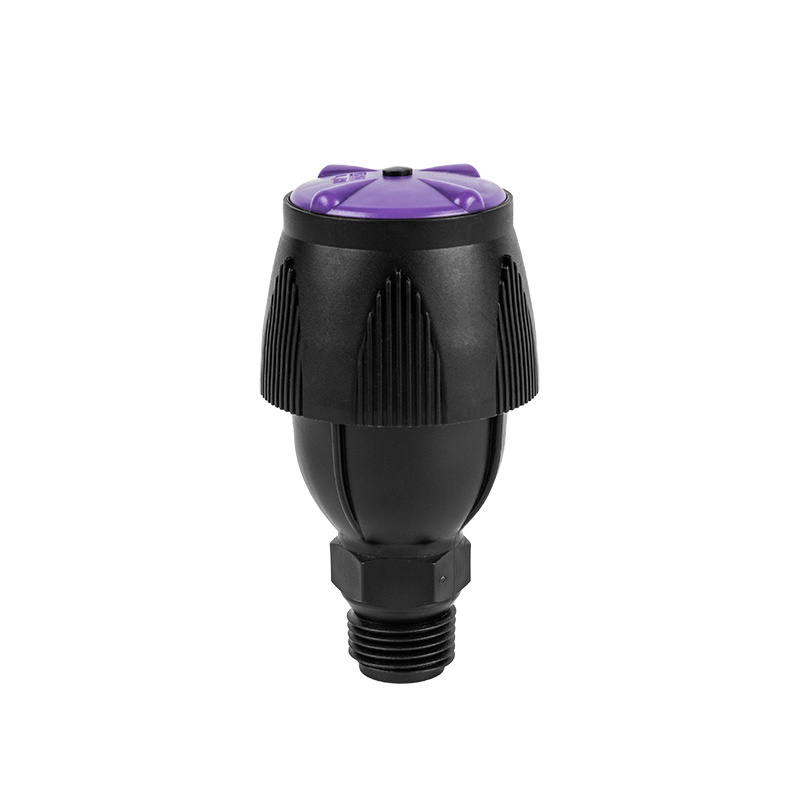Maximize Your Crop Yield with Efficient Garden Sprinkler Irrigation Systems
Efficient irrigation is the backbone of successful agriculture. In recent years, garden sprinkler irrigation systems** have emerged as a vital tool for maximizing crop yield, conserving water, and improving soil health. By providing controlled and consistent watering, these systems enable farmers to optimize their farming practices and enhance productivity. This article delves into various types of sprinkler systems and their advantages, helping you determine the best approach for your agricultural needs.

The Importance of Efficient Irrigation Systems
Water is a crucial resource in agriculture. The efficiency of irrigation systems** directly correlates with crop yield. Inefficient watering can lead to water wastage, nutrient leaching, and poor plant growth. By utilizing an efficient garden sprinkler irrigation system, farmers can ensure that their crops receive the right amount of water at the right time, promoting healthy growth and maximizing yield.
Types of Garden Sprinkler Irrigation Systems
Understanding the various types of sprinkler irrigation systems is essential for selecting the right one for your farm. Each system has its own advantages and can be tailored to specific agricultural needs.
Drip Irrigation Systems
**Drip irrigation** is one of the most efficient watering methods available. It delivers water directly to the plant roots through a network of tubes and emitters. This targeted approach minimizes evaporation and runoff, making it an excellent choice for water conservation. Drip systems are particularly beneficial for crops that require consistent moisture, such as fruits and vegetables.
Manual Sprinkler Systems
**Manual sprinkler systems** involve the use of portable sprinklers that can be moved around the garden or field according to the watering needs of various crops. These systems are generally less expensive but require more labor and management. Farmers can use manual systems for small-scale operations or when establishing new crops.
Automatic Sprinkler Systems
**Automatic sprinkler systems** incorporate timers and sensors to deliver water without the need for continuous monitoring. These systems can be programmed based on weather conditions, soil moisture levels, or specific crop requirements. The automation of irrigation reduces labor costs and allows for more precise water application, making it an ideal choice for larger farming operations.
Benefits of Using Sprinkler Irrigation in Agriculture
Implementing an efficient garden sprinkler irrigation system offers numerous advantages for farmers.
1. Improved Water Conservation
Sprinkler systems target specific areas, reducing water loss due to evaporation and runoff. This conservation is critical in regions facing water scarcity.
2. Enhanced Crop Growth
Consistent moisture levels promote healthy root development and plant growth. With optimal watering, crops can thrive, leading to higher yields.
3. Reduced Labor Costs
Automated systems can significantly reduce the need for manual labor in irrigation, allowing farmers to allocate resources more efficiently.
4. Flexibility in Application
Sprinkler systems can easily be adjusted for different crops and soil types, allowing farmers to customize their watering approach based on specific needs.
5. Pest and Disease Control
By maintaining proper moisture levels, sprinkler irrigation can help mitigate pest infestations and disease spread, reducing the need for chemical treatments.
Best Practices for Implementing Sprinkler Irrigation
To maximize the benefits of garden sprinkler irrigation systems, consider the following best practices:
1. Assess Your Soil Type
Understanding your soil's characteristics is crucial for selecting the right sprinkler system. Different soils retain moisture differently; thus, knowing your soil type will help in determining the appropriate watering schedule.
2. Select the Right System
Choose a sprinkler system that fits the scale of your operation and the specific crops you are growing. Consider factors like budget, crop needs, and water availability.
3. Schedule Watering Wisely
Implement a watering schedule that considers weather patterns and crop growth stages. Utilizing sensors can help in detecting soil moisture levels and adjusting the schedule accordingly.
4. Monitor and Adjust
Regularly monitor your irrigation system to ensure it operates efficiently. Look for signs of over- or under-watering and adjust your practices as needed.
5. Regular Maintenance
Conduct routine checks and maintenance on your sprinkler system to prevent clogs, leaks, and other issues that can hinder performance.
Maintenance of Sprinkler Irrigation Systems
Proper maintenance is vital for the longevity and effectiveness of sprinkler irrigation systems.
1. Routine Inspections
Regularly check all components, including hoses, valves, and emitters, for wear and tear. Early detection of problems can save time and resources.
2. Clean Emitters and Filters
Over time, emitters can become clogged with dirt and debris, impacting water flow. Ensure to clean or replace emitters and filters as necessary.
3. Adjust System Settings
As crops grow and seasons change, revisit your system's settings. Adjust the watering schedule and coverage area to align with current needs.
Case Studies: Successful Implementation of Sprinkler Systems
Numerous farms around the world have successfully integrated efficient sprinkler irrigation systems, resulting in remarkable improvements in crop yields.
1. Case Study: Organic Vegetable Farm
An organic vegetable farm implemented a drip irrigation system that reduced water use by 40% while increasing yields by 30%. The targeted watering approach allowed for better nutrient absorption, resulting in healthier produce.
2. Case Study: Fruit Orchard
A fruit orchard transitioned from a traditional manual system to an automatic sprinkler system. This change led to a 50% reduction in labor costs and a 20% increase in fruit yield, demonstrating the effectiveness of automated irrigation.
Implementing an efficient garden sprinkler irrigation system is a strategic move for maximizing crop yield and ensuring sustainable agricultural practices. By understanding the various types of sprinkler systems and practicing regular maintenance, farmers can enhance productivity while conserving precious water resources. With the right approach, you can transform your agricultural operation and achieve higher yields, making your farm more resilient and profitable. Investing in these advanced irrigation solutions not only benefits your crops but also the environment, paving the way for a more sustainable future in agriculture.

评论
发表评论